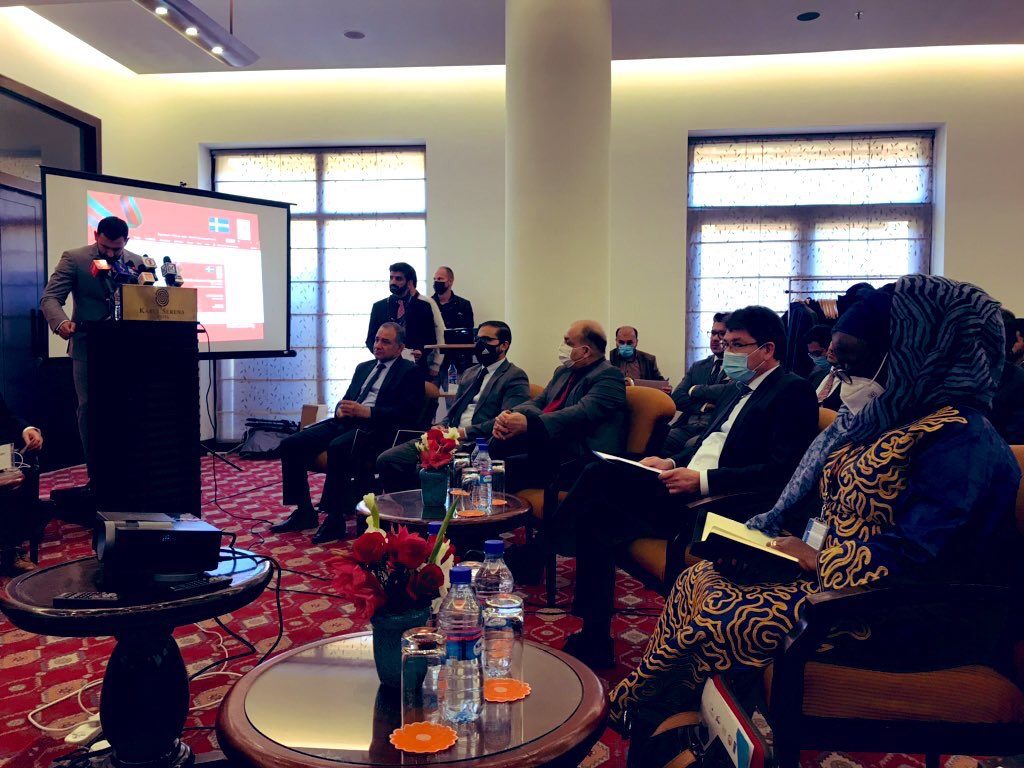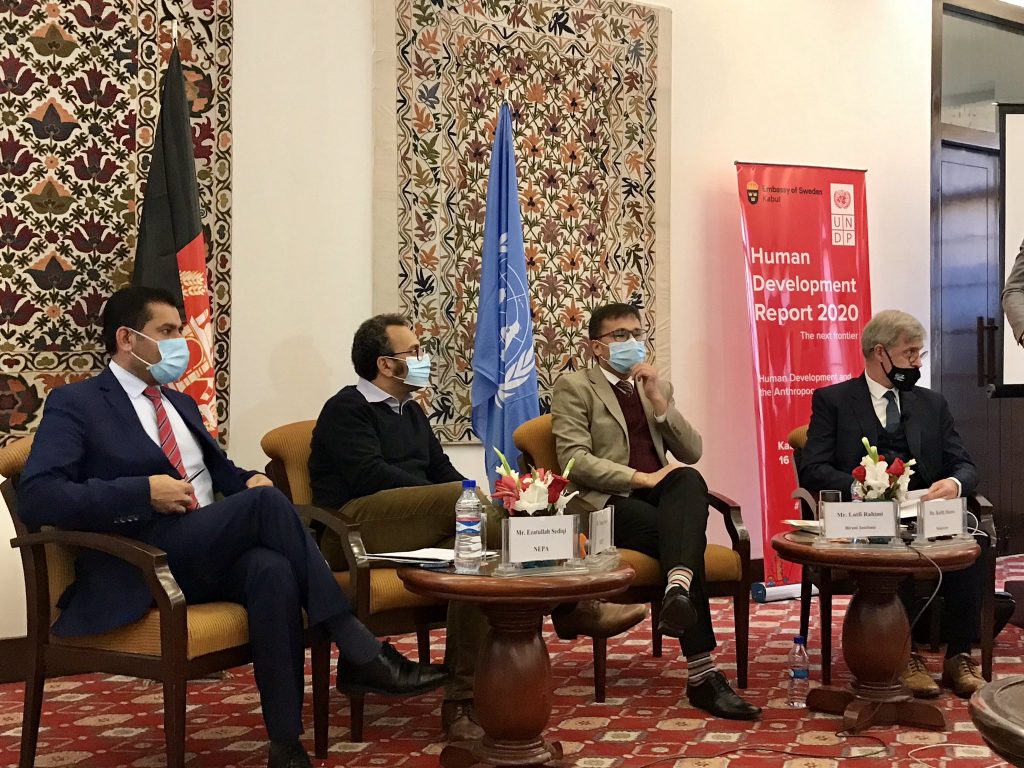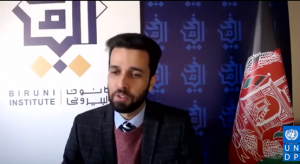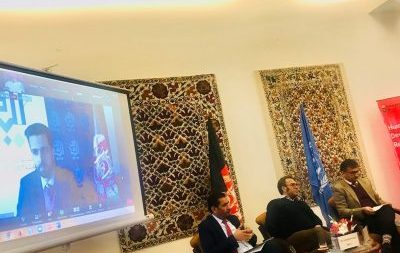Serena, Kabul, Afghanistan
ED Nazir Kabiri and Dr. Lutfi Rahimi of Biruni Institute takes part in the expert panel discussions on the national launch of the 2020 Human Development Report titled: ‘The Next Frontier: Human Development and the Anthropocene’.
 The national report is part of the Global Human Development Report published almost every year by the United Nation’s Development Program (UNDP) for the past 30 years. These include indices such as Human Development Index (HDI), Gender Development Index (GDI), Gender Inequality Index (GII), and Multidimensional Poverty Index (MPI). The indices in this report consider inequality, poverty, gender parity, and climate adjusted growth rates which are better representations of human development than pure GDP figures.
The national report is part of the Global Human Development Report published almost every year by the United Nation’s Development Program (UNDP) for the past 30 years. These include indices such as Human Development Index (HDI), Gender Development Index (GDI), Gender Inequality Index (GII), and Multidimensional Poverty Index (MPI). The indices in this report consider inequality, poverty, gender parity, and climate adjusted growth rates which are better representations of human development than pure GDP figures.
As a member of the panel, Dr. Lutfi Rahimi, Research Fellow at the Biruni Institute, discussed that in the human development debate, there are ecologically and socially competing objectives. While it is important to be careful and plan for ecological threats, warnings but the immediate context of Afghanistan makes the social dimensions more urgent.
Dr. Rahimi stated that we must not confuse policy failures with industrially caused problems: current, ecological issues related to Kabul city such as air pollution, underground water levels, and contamination are mere policy failures rather than industrial problems. The concentration of economic and political activities in Kabul attracts people from all over the country, and the government has not been able to diversify by creating similar cities around the country to ease the pressure on Kabul city.
 ED Kabiri, talking on the sustainability and future of financing the development agenda, stressed that the decline in donor aid for Afghanistan is detrimental to its human development agenda. Economic transition starting 2014 has not been managed very well at the policy level to say the least. Future of development financing is a major challenge and the private sector may come in to fill this gap but based on current projections this seems an unlikely option. Thorough policy reform is needed to take place in Afghanistan to make sure that these challenges are smoothened. The current national policy documents with the National Priority Programs (NPPs) somewhat fails to do that
ED Kabiri, talking on the sustainability and future of financing the development agenda, stressed that the decline in donor aid for Afghanistan is detrimental to its human development agenda. Economic transition starting 2014 has not been managed very well at the policy level to say the least. Future of development financing is a major challenge and the private sector may come in to fill this gap but based on current projections this seems an unlikely option. Thorough policy reform is needed to take place in Afghanistan to make sure that these challenges are smoothened. The current national policy documents with the National Priority Programs (NPPs) somewhat fails to do that
 In Addition to that, Rahimi stressed that the debate on human development must happen in Afghanistan at two levels: at a conceptually and how relevant it is to the unique situation of the country and subsequently at the policy measurement levels. For instance, current strategies as laid out in the Afghanistan National Peace and Development Framework (ANPDF II) has GDP growth as its backbone and fails short to mention HDI, not even once.
In Addition to that, Rahimi stressed that the debate on human development must happen in Afghanistan at two levels: at a conceptually and how relevant it is to the unique situation of the country and subsequently at the policy measurement levels. For instance, current strategies as laid out in the Afghanistan National Peace and Development Framework (ANPDF II) has GDP growth as its backbone and fails short to mention HDI, not even once.



